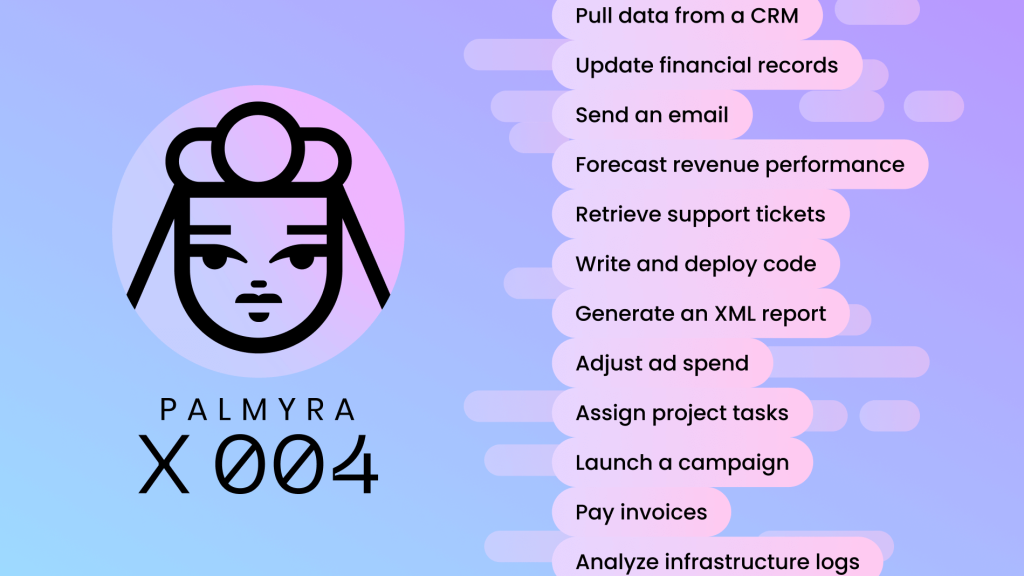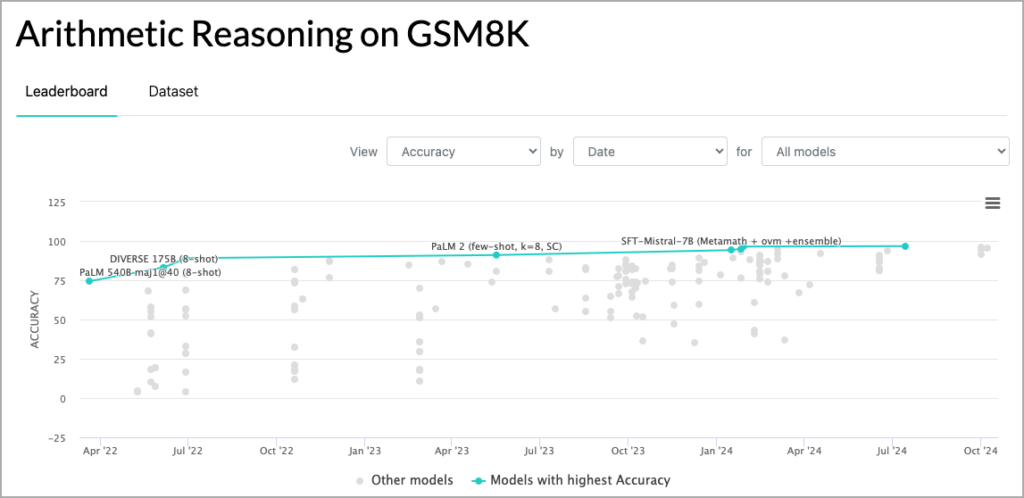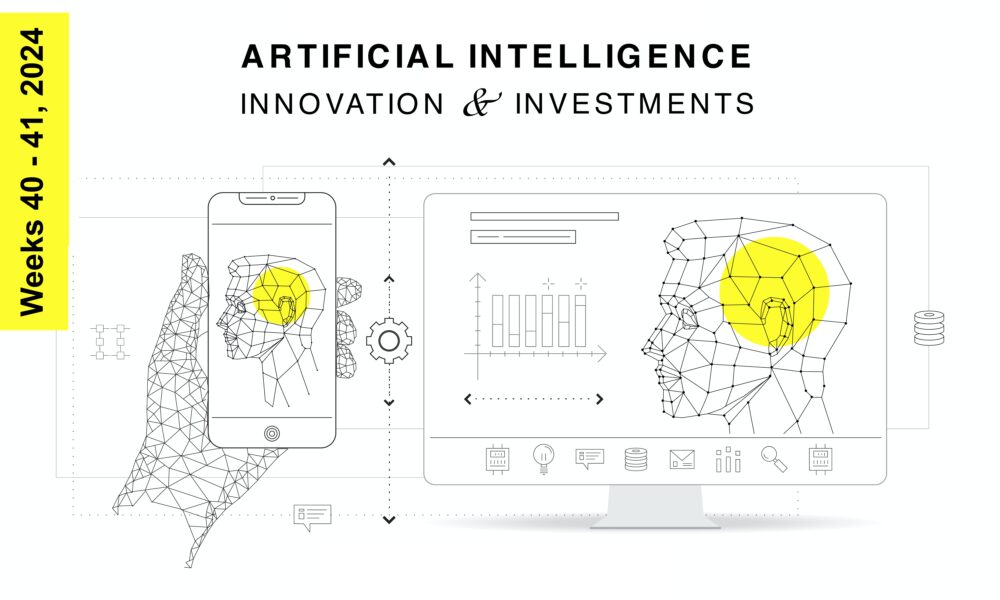AI Weeks 40-41 2024 Summary
Meta is poised to revolutionize AI video generation with its upcoming tool, MovieGen. Set to debut on Instagram in 2025, MovieGen empowers users to create high-quality videos from various inputs like text prompts, images, and sound clips. This innovative tool aims to democratize video creation, making it accessible to users of all skill levels. MovieGen leverages sophisticated algorithms to transform user input into polished video content, signifying a major step forward in AI-powered content creation. This positions Meta as a leader in the competitive landscape of generative AI technologies.
LLM Palmyra X 004 Sets New Benchmarks for AI Action Capabilities
Palmyra X-004, a new large language model (LLM) by Writer, has registered superior accuracy in tool calling and API selection compared to other leading models like GPT, LLama, Claude, and Gemini. Benchmarks show Palmyra X-004 leading the industry with nearly 20% higher accuracy in identifying and executing the correct tool calls, which allows it to interact with tools and services made available to it by an AI engineer in the company’s bespoke AI Studio.
This model excels at planning, structuring, and executing these calls, whether sequentially or in parallel, within a single user interaction. Its high performance stems from its ability to accurately interpret user input, generate the correct parameters, and sequence steps effectively.
Beyond tool calls, Palmyra X-004 also ranks among the top 10 global models on HELM Lite and HELM MMLU, comprehensive benchmarks evaluating LLMs’ holistic understanding and knowledge across various subjects. These tests demonstrate its robust capabilities beyond specific tool interactions.

Writer positions Palmyra X-004 as a key component in their platform, aiming to connect data, tools, and departments within enterprises seamlessly with minimal human intervention or custom development. The model is available through Ask Writer and AI Studio, encouraging developers to explore its action capabilities.
AI-Powered Amazon Package Sorting? It’s Coming Soon.
Amazon is implementing new AI-powered technology, called Vision-Assisted Package Retrieval (VAPR), designed to streamline package retrieval within its electric delivery vans. VAPR is part of Amazon’s efforts to enhance delivery operations by integrating advanced technology into their fleet. This AI-driven system uses Amazon Robotics Identification (AR-ID), a computer vision technology originally developed for Amazon’s fulfillment centers, to identify and sort packages without the need for manual barcode scanning.
VAPR significantly reduces the time and effort delivery drivers need to spend sorting packages. Once the delivery van arrives at a stop, VAPR projects a green “O” on packages designated for that location and a red “X” on others. This visual cue allows drivers to quickly and easily identify the correct packages, minimizing the risk of delivery errors. VAPR is equipped with automotive light projectors and cameras, and is integrated with the van’s navigation system to provide seamless operations.

The new technology, currently being tested in the North Boston area, has shown promising results, with drivers experiencing a 67% reduction in both physical and mental effort and saving more than 30 minutes per route. With plans to deploy this system in 1,000 electric delivery vans by early 2025, Amazon aims to scale these efficiencies across its global network, improving the driver experience, reducing delivery times, and enhancing customer satisfaction.
Should AI-Powered Weapons Be Used to Kill?
Silicon Valley is currently embroiled in a debate regarding the ethics of autonomous weapons systems (AWS), specifically whether artificial intelligence should be granted the authority to make lethal decisions. Proponents argue that AWS could potentially reduce casualties by making faster, more calculated decisions in combat scenarios, free from human error and emotional biases. They also suggest that these systems could deter conflict by introducing a level of unpredictability, and even uphold international humanitarian law more effectively than human soldiers.

However, critics express serious concerns about the potential dangers of relinquishing life-or-death decisions to machines. They highlight the risk of algorithmic bias leading to unintended targets, the potential for unforeseen errors or malfunctions with catastrophic consequences, and the lack of accountability in cases of civilian harm. There are also fears that the development of AWS could trigger a global arms race, destabilizing international security and lowering the threshold for armed conflict. The debate raises fundamental questions about human control, the nature of warfare, and the ethical implications of increasingly sophisticated AI.
Current Measurements of LLM Logical Reasoning Abilities May Be Unreliable
The standard benchmark for testing LLM mathematical reasoning, Grade School Math 8K (GSM8K), has long been accepted as an accurate measurement of a model’s capabilities.

To address this, Apple AI researchers introduced GSM-Symbolic, a new benchmark using symbolic templates to generate diverse questions and provide more reliable metrics. This allows for more controlled evaluations of LLMs’ mathematical reasoning abilities.
Studies using GSM-Symbolic show that LLM performance changes a lot depending on the exact numbers used in a question, even if the problem itself stays the same. Performance also goes down as the number of clauses in a question goes up, which suggests that LLMs have trouble with complex logical reasoning and rely on copying patterns from training data. Adding an irrelevant clause can drastically lower performance, showing how weak LLM reasoning is right now. This research gives us a more complete picture of the problems LLMs face in mathematics.
Lifelike Hippos: Coming to a Screen Near You
Meta is set to make a significant entry into the AI video generation space with the introduction of MovieGen, a powerful new tool designed to create short, high-quality videos. Scheduled to debut on Instagram in 2025, MovieGen leverages advanced AI capabilities to transform user input into polished video content, aiming to democratize video creation by making it accessible and straightforward for users without advanced editing skills.
MovieGen operates using sophisticated algorithms capable of understanding a variety of input types, from text prompts and images to sound clips, allowing users to craft personalized videos that align with their creative vision. This tool signifies a major step forward in AI-powered content creation, setting Meta apart in the competitive landscape of generative AI technologies.



